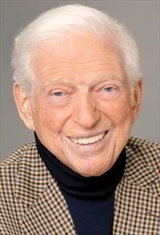A Quote by Eric Foner
I admire Lincoln enormously and I think what's interesting about Lincoln is how he changes, it's not that he held the same view throughout his life.
Related Quotes
It is very hard to answer the oft-posed questions about how Abraham Lincoln would respond to some current condition. My favorite story on that count is that the late great Lincoln scholar Don Fehrebacher was asked, during the struggles over bussing for racial balance a few years ago, what Lincoln would say about "bussing" and he thought awhile and then answered : "what Lincoln would say would be: "What's a bus?"
There's been more written about Lincoln than movies made about him or television portraying him. He's kind of a stranger to our industry, to this medium. You have to go back to the 1930s to find a movie that's just about Abraham Lincoln. I just found that my fascination with Lincoln, which started as a child, got to the point where after reading so much about him I thought there was a chance to tell a segment of his life to to moviegoers.
Abraham Lincoln was asked by an aide about the church service he had attended. Lincoln responded that the minister was inspired, interesting, well-prepared, eloquent and the topic relevant. The aide said, “Then it was a good service?” Lincoln responded, “No.” The aide protested, “But, Mr. President, you said that the minister was inspired, interesting, well-prepared, eloquent, and that the topic was relevant.” “Yes,” replied Lincoln, “but he didn’t challenge us to do any great thing.
I've done my share of reading about Abraham Lincoln, throughout my life, and he wasn't always carved in stone. He was a human being. He was a very thoughtful, self-educated, complex, magnanimous human being, who was very, very strong, very smart and very canny, with a very strong sense of what was right and what was wrong. Through all that, he's become an icon, over the years, and some of his warmth and humanity has been lost. You don't tend to think of Lincoln as this warm, funny person, but he was.
Until the early 90s, when I was working on a project about the idea of free will in American philosophy. I knew that Lincoln had had something to say about "necessity" and "fatalism," and so I began writing him into the book. In fact, Lincoln took over. I wrote instead 'Abraham Lincoln: Redeemer President,' in 1999, and I've splitting rails with Mr. Lincoln ever since. If there's a twelve-step process for this somewhere, I haven't found it yet.
I am asked often about Abraham Lincoln's mistakes and faults; he certainly made some mistakes. I have chapter in President Lincoln about the Powhatan affair that was a royal screw-up in the early days - right alongside the Sumter affair. Lincoln signed letters he should not signed, and the ship was sent to two places at one under two captains etc. Fortunately, no great harm. Lincoln took the blame and did not do anything like that again.
Lincoln has accepted America as a biracial society. He's talking about giving at least some black men the right to vote. In the Emancipation Proclamation he advises some blacks to labor faithfully for reasonable wages, here in the United States. He doesn't say anything about them leaving the country. He puts black men in the army. That is a whole different vision than simply saying "let's have them go out of the country." I think what's interesting is the change in Lincoln's view, but one must realize that he did adhere to this idea of colonization for many years.
Remember that Abraham Lincoln was a Whig far longer than he was a Republican. As a whole, the Whigs looked upon banks and corporations as a more efficient means of development; the Jacksonian Democrats thought they were the tools of the devil, but Whigs like Lincoln disagreed. During his presidency, Lincoln favored the re-construction of a national financial system, and his most important 'internal improvement' project was the Pacific railroad.



































